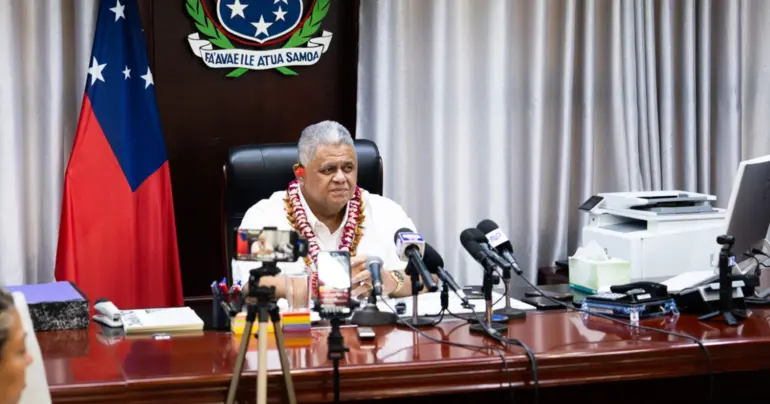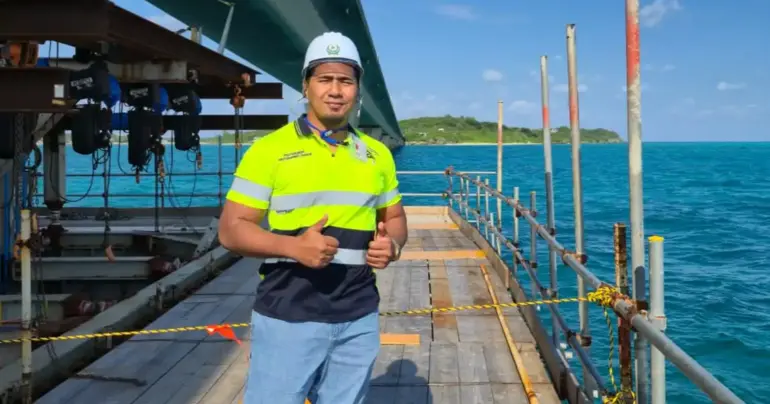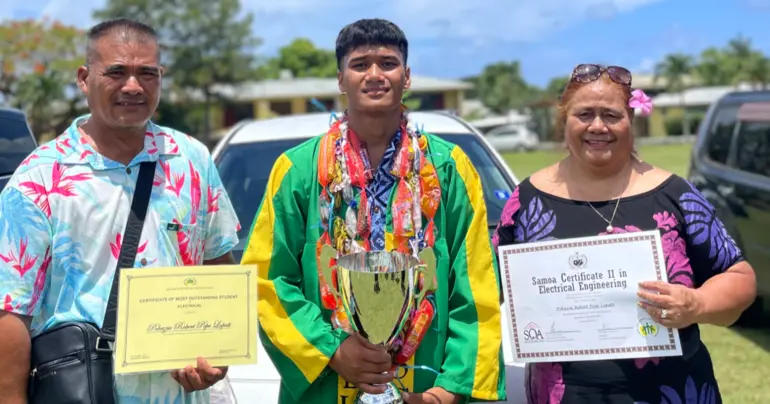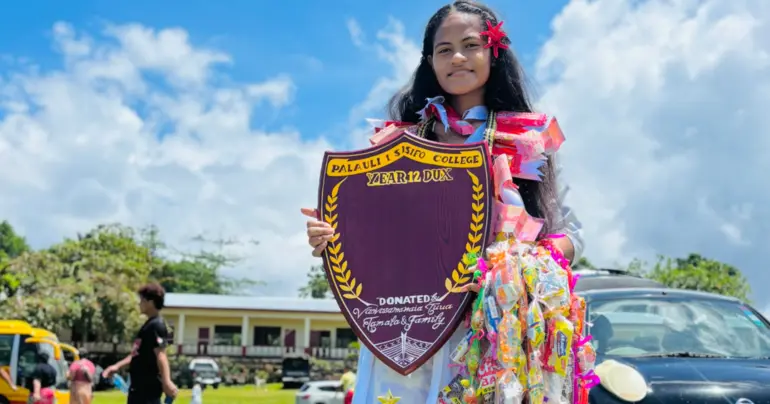Samoa remains on COVID alert
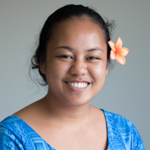 By Soli Wilson
•
17 June 2021, 10:00AM
By Soli Wilson
•
17 June 2021, 10:00AM
The National Emergency Operation Centre (N.E.O.C.) has reminded the public that Samoa remains on high alert for the spread of the COVID-19 virus and encouraged people to take precautionary measures accordingly.
The N.E.O.C. says that recommendations such as applying a two-metre social distancing policy in public places and practicing good hygiene still remain in force.
The Ministry of Health’s Director-General, Leausa Dr. Take Naseri, said whilst the national mass vaccination rollout programme is underway people should still take precautions against contracting the virus.
Nearly four million people have died from the global pandemic, while there are more than 175 million cases worldwide, according to the latest data from Johns Hopkins university.
Speaking during a press conference on Monday, Leausa cited, as an example, the public health risks posed by a large number of people gathering to visit patients at the national hospital.
“In the beginning of our precautionary measures, we restricted the number of people allowed to go into the hospital,” he said.
“We said one carer and no children allowed, but we have seen that it’s gone back to the old ways of mothers coming in carrying a baby and holding the hand of a four-year-old going to visit the brother of her husband or father.
“There’s no reason why they should take the children and roam without a mask, including in the hospital.
“But these are precautions that are very important at the moment, especially with the release of travellers from our repatriation flights after quarantine.
“We never know who amongst those roaming in town, supermarkets and restaurants have just been released from quarantine.”
Leausa said despite travellers being held in mandatory isolation for up to three weeks following their arrival in Samoa, there have been cases outside the country of people testing positive for coronavirus up to 30 days after their arrival.
Such incidences have made the N.E.O.C. particularly wary, the N.E.O.C. said, which is driving their latest public appeal to adhere to the precautionary measures put in place.
On Tuesday, the public was warned against joining large public gatherings at the Faleolo International Airport or risk facing fines of up to $500.
But despite the long-standing prohibitions on gatherings, a large number of people gathered at the airport on Tuesday to farewell family and friends who were departing Samoa to work as seasonal workers.
Such gatherings are prohibited under the terms of the COVID-19 state of emergency orders; the rules first proclaimed in March last year and progressively extended through to this month.
The penalties for breaching emergency orders range from $200 to $500 for individuals while organisations can face financial penalties between $5,000 to $7,000.
The health chief also clarified that not all who have been vaccinated against COVID-19 undergo a seven-day mandatory managed isolation as others may require a longer isolation period.
Leausa said contrary to a general belief amongst travellers that they only get seven days in quarantine if they are vaccinated, cases are analysed on a case-by-case basis.
“If the passenger comes down with a fever while in quarantine, it is very hard for us to let them go,” he said.
“This is the simple answer to the many questions and complaints who have questioned why others get released after seven days and others are held back.
“They are held longer because there are reasons that determine the decisions. If you see our travel advisory, at the very top it says, travellers are assessed on a case-by-case basis.
“One case is not aligned with another’s cases, they are all different because they all react differently to the virus, like many other diseases.”
Leausa said last week health officials underwent refresher courses in simulation cases at the hospital in preparation for an emergency COVID-19 case.
Leausa noted that Fiji, which recorded 88 new cases on Monday and is in the grip of an outbreak, said their recent flare-up of the epidemic started from the case of a single person at a quarantine facility.
“We are preparing for this virus, like it will be here soon,” he said.
“It was someone who worked at one of the quarantine sites in Fiji that took the virus home with them.
“Now we have seen how much it is spreading over there; that’s also the concern for us, in case we become complacent with our many precautions.
“No one that comes this far wants to back down from carrying out this role, so please, let us be patient, wash our hands.
“Plus it is not just for COVID-19; when our restrictions of the COVID-19 state of emergency orders were strongly enforced, there were a very small number of people admitted at the hospital, especially children.
“If there were a lot of them there would only be six or four children in the ward because everyone has practised prevention measures.”
Fiji's COVID-19 outbreak has been mainly fueled by the so-called Delta variant of the virus, which earlier this year was responsible for a massive and deadly outbreak in India, is now worse than infections in Australia and New Zealand, local health authorities have said.
Fiji now has 860 active cases, with 23 patients recovered.
Leausa reminded the public to adhere to two-metre social distancing procedures and adhere to markers on floors in supermarkets; he said that members of the public were increasingly ignoring the prompts and seemingly growing complacent.
According to the statement issued on Tuesday, Samoa remains at a COVID-19 alert status of Level 1 (Yellow). State of emergency orders continue to encourage social and physical distancing as well as basic hygiene and wearing facial masks in public places.
The penalties for breaching the orders are $200 (for a first offence) and $500 for a continuous offence. Organisations or corporations can face fines of up to $5,000 for a first offence and a fine of $7,000 for a continuous offence.
More than 41,00 people in Samoa have received the first dose of the AstraZeneca vaccine. The dispensing of second inoculations began this week, so far a total of 176 people have received the second shot required to complete their vaccination against the virus, health Ministry figures show.
Tags
 By Soli Wilson
•
17 June 2021, 10:00AM
By Soli Wilson
•
17 June 2021, 10:00AM





